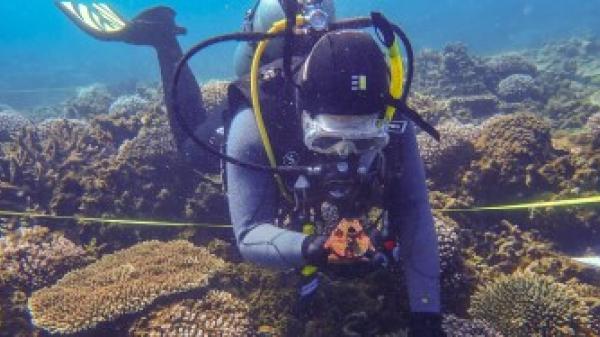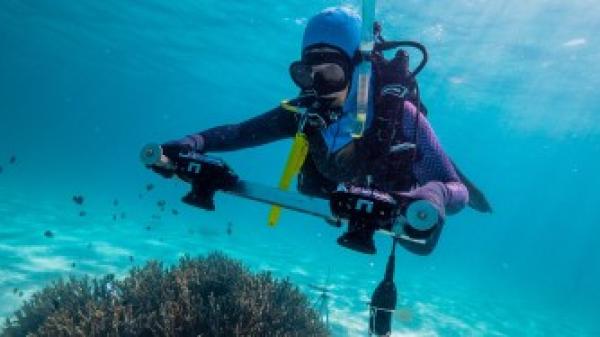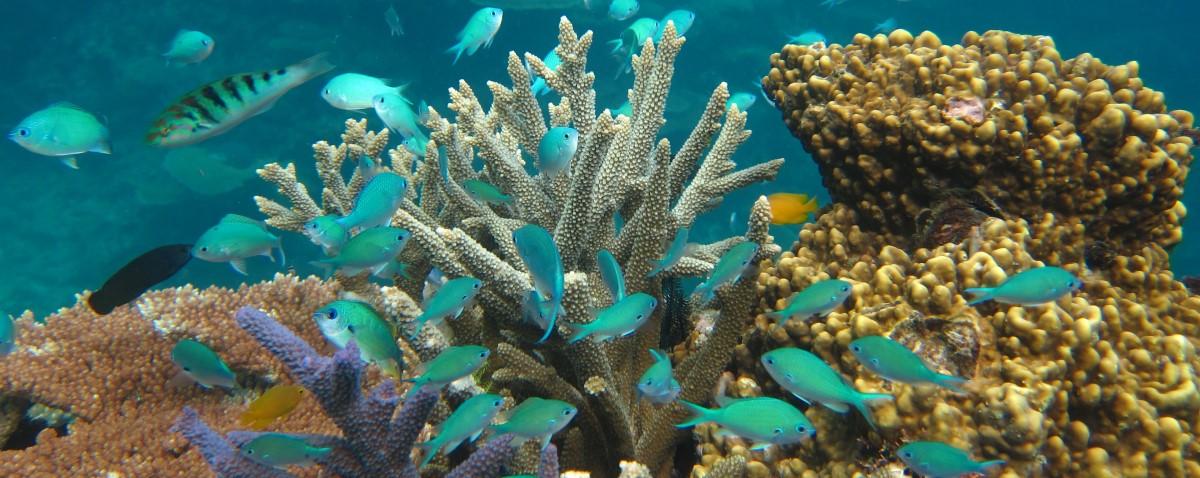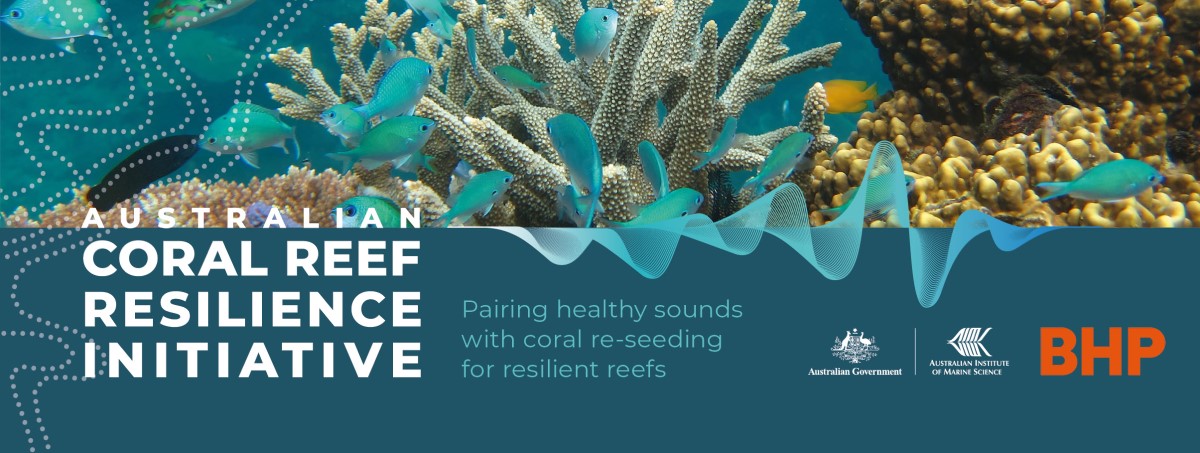The Australian Coral Reef Resilience Initiative (ACRRI) is novel national research to influence both the size of future adult fish populations and the amount of coral cover on a reef.
This initiative takes a ‘whole-of-system’ approach to reef restoration. Spanning two oceans, it combines research in coral re-seeding with healthy reef sounds to attract fish and improve the resilience of coral reefs being affected by climate change.
The program brings together research from two World Heritage sites:
- Woppaburra Coral Project on the Great Barrier Reef in Queensland; and
- Reef Song Project at Ningaloo Reef in Western Australia and on the Great Barrier Reef.
Since 2019, ACRRI has advanced research in ‘coral seeding’ - a technique designed to accelerate the return of juvenile corals to damaged reefs over large areas. It has also pioneered complementary research into the influence of fish on coral recruitment, growth and resilience, and how reef sounds might attract young fish and corals to reefs.
The Initiative is more than a science program. ACRRI has established meaningful, ongoing partnerships between scientists and local Traditional Custodians, creating a model for future Indigenous marine science partnerships and training in Australia.

Woppaburra Coral Project
The Woppaburra Coral Project on the southern Great Barrier Reef has significantly progressed the science of coral seeding for reef restoration.
Through strong collaboration, the Project has empowered Woppaburra Traditional Custodians with capacity and training to help manage sea Country into the future.

Reef Song Project
The Reef Song Project delivers complementary knowledge to reef restoration, through pioneering research into the role of fish in coral growth and resilience at Ningaloo and the northern Great Barrier Reef.
Reef Song is also investigating how reef communities can be influenced by acoustics, or reef songs.
Why is this research needed?
Coral reefs worldwide are increasingly degraded primarily due to the impacts of climate change. Coral reef restoration aims to improve the resilience of reef ecosystems into the future by increasing numbers of juvenile corals on reefs.
Reef restoration practices have been trialled for some time on reefs around the world. However, scientists are working on new large-scale methods to better suit Australia’s vast and complex coral reef systems. Coral seeding is one promising area of reef restoration that uses conservation aquaculture to fast-track reef recovery following disturbances over large areas. Expanding current knowledge to include fish, improves how restoration can be applied in real-world settings.
The Australian Coral Reef Resilience Initiative provides key information to reef restoration practitioners, Traditional Custodians, managers, and scientists to support future restoration efforts.


